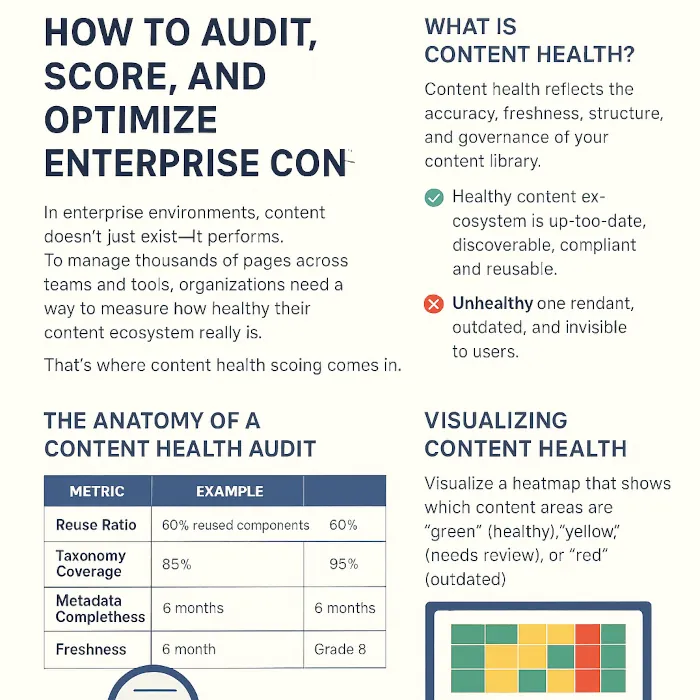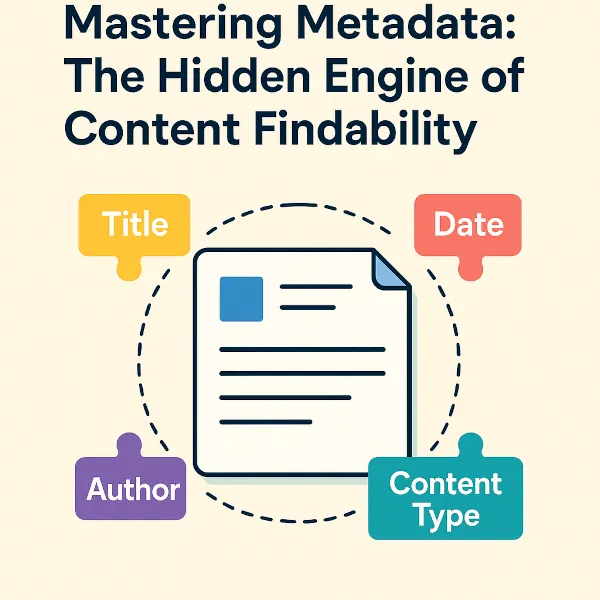Introduction to Data Monetization
Data monetization refers to the process of generating measurable economic benefits from the analysis and utilization of data. In the contemporary business landscape, data stands as a critical asset that organizations can leverage to enhance decision-making, optimize operations, and ultimately create revenue streams. Businesses are increasingly recognizing the value of their data. Viewing it not merely as a byproduct of operations but as a strategic resource essential for achieving competitive advantage.
As we progress towards 2025, the significance of data monetization is likely to amplify. Driven by growing volumes of data generated through digital interactions, transactions, and emerging technologies. The explosion of data sources, ranging from IoT devices to social media platforms, presents organizations with unprecedented opportunities to harness insights. These valuable insights can inform strategies and spur innovation. Consequently, businesses are striving to extract valuable insights from their datasets to engage customers better, refine products, and tailor services to meet the evolving needs of the market.
Catalyzing this transformation is the rapid advancement of artificial intelligence (AI) technologies. AI facilitates the extraction of actionable insights from vast datasets. This enables organizations to identify patterns and trends that would have been previously unfathomable. Through machine learning algorithms and predictive analytics, businesses can not only analyze historical data but also forecast future trends with a remarkable degree of accuracy. This capability empowers companies to make informed decisions that can directly impact their revenue generation efforts.
AI as the Game-Changer
As we approach 2025, the landscape of data monetization is set to undergo significant transformation. This transform is largely driven by advancements in artificial intelligence (AI). Leading organizations are increasingly recognizing AI as a pivotal game-changer in developing innovative data monetization strategies. The availability of sophisticated AI tools will enable businesses to conduct enhanced data analysis, providing deeper insights and more accurate forecasts. These insights empower companies to make informed decisions, optimize their offerings, and tailor their strategies to meet evolving consumer demands.
One of the primary advantages of AI in data monetization is its capacity for processing vast amounts of data with remarkable speed and precision. This capability is augmented by scalable infrastructure facilitated by cloud computing. This allows organizations to efficiently manage and analyze their data in real-time. In 2025, we anticipate a surge in AI-driven platforms that leverage cloud resources for extensive data storage and computational power. Such platforms can seamlessly handle increases in data volume. Hence, enabling companies to derive actionable insights from complex data sets without the limitations of traditional systems.
Furthermore, artificial intelligence will play a crucial role in enabling personalization at scale. As businesses engage with their customers through multiple channels, AI-powered algorithms can analyze individual behaviors and preferences. By doing so, this enables highly tailored customer experiences. This level of personalization will not only enhance customer satisfaction but also drive revenue growth. Additionally, it fosters brand loyalty and encourages repeat business. The synergy between advanced data analysis, scalable AI infrastructure, and personalized engagement strategies positions organizations to leverage their data assets more effectively. This ultimately equates to a formidable competitive advantage.
Emerging Trends in Data Monetization
The landscape of data monetization is rapidly evolving, presenting businesses with innovative ways to leverage their data assets. One significant trend is the rise of data marketplaces, which facilitate secure data trading among organizations. These platforms enable companies to buy and sell data in a regulated environment, promoting transparency and fostering trusted transactions. As organizations increasingly recognize the value of shared data, these marketplaces will become essential for unlocking additional revenue streams and enhancing operational efficiencies.
Another prominent trend is the development of insights as a service. This model democratizes access to advanced AI capabilities. Accordingly, allowing even small enterprises to utilize sophisticated analytics that were once the purview of larger corporations. By providing organizations with the tools to obtain actionable insights from their data without needing extensive in-house expertise, this service enables businesses to make informed decisions and enhance their strategic positioning in the market. The integration of insights as a service into daily operations empowers companies to innovate and adapt to shifting consumer demands.
In addition to these trends, AI-driven product innovation is reshaping how businesses develop and enhance their offerings. Organizations are increasingly utilizing AI to analyze data and identify gaps in the market. Thereby facilitating the creation of products that align with customer needs and preferences. This approach not only streamlines the product development process but also ensures that offerings are grounded in actionable insights. As aresult, leading to higher customer satisfaction and improved competitive advantage. With continuous advancements in AI and data analytics, businesses can anticipate trends, innovate faster, and ultimately drive greater profitability.
These emerging trends in data monetization highlight the transformative potential of data in shaping business strategies. By embracing these changes, organizations can position themselves as leaders in an increasingly data-driven economy.

How Data Monetization Will Affect Corporate Revenues
As businesses increasingly recognize the immense value of their data, the concept of data monetization is anticipated to evolve significantly by 2025. Effective data monetization strategies can enable companies to harness their information assets. This leads to the development of new revenue streams and fundamentally altering their financial performance. The integration of artificial intelligence (AI) tools in this process can enhance efficiency and precision, ultimately improving profit margins.
One primary avenue through which data monetization will influence corporate revenues is via the proactive selling of insights derived from data analytics. Organizations can leverage their customer data, market trends, and operational metrics to create tailored offerings that resonate with market segments. This approach not only opens up new sales opportunities but also solidifies customer relationships. Thereby promoting customer loyalty and driving repeat business.
Moreover, effective data monetization enhances operational efficiencies. Companies utilizing AI technologies can automate data processing and analysis, reducing the time and resources allocated to these tasks. This increased efficiency translates into cost savings that affect the bottom line positively. By optimizing operations, organizations can reallocate resources toward innovation and expansion initiatives, further facilitating revenue growth.
The role of data monetization in bolstering competitive advantage cannot be overstated. As firms uncover valuable insights that influence product development, marketing strategies, and customer engagement, they position themselves ahead of competitors who may not yet fully embrace data-driven approaches. Consequently, the informed decision-making enabled by data analytics leads to greater sales conversions and higher overall revenue generation.
As we move toward 2025 the financial implications of effective data monetization strategies are poised to redefine corporate revenues. By creating new revenue streams and enhancing operational efficiencies through AI, businesses can expect a substantial impact on their profitability and long-term sustainability.
Challenges and Considerations
As organizations prepare to embrace data monetization strategies in 2025, several challenges and considerations emerge that must be carefully addressed. One of the foremost issues is the governance of data. Companies must implement robust frameworks to manage the access, use, and sharing of data. This ensures that all processes align with applicable privacy regulations, such as the General Data Protection Regulation (GDPR). This is particularly crucial as data monetization often involves the use of personal data, which requires a higher standard of protection and compliance to maintain consumer trust.
Furthermore, organizations must navigate the ethical risks associated with artificial intelligence (AI) utilization in data monetization efforts. The delegation of decision-making processes to AI systems introduces the potential for bias. This can result in unfair treatment of certain groups of individuals. Addressing AI bias necessitates a continuous review of algorithms and data sources. This activity ensures that ethical considerations are integrated into AI development and deployment. This commitment to ethical AI not only reaffirms a company’s integrity but also safeguards against reputational damage that may arise from biased data insights.
Another challenge pertains to the security of invaluable datasets. As organizations harness data for monetization, they must also take vigilant measures to protect this data from cyber threats. Data breaches not only jeopardize sensitive information but can also lead to significant financial losses and legal repercussions. Implementing advanced cybersecurity protocols, conducting regular security audits, and fostering a culture of security awareness among employees are pivotal in safeguarding data assets.
The pursuit of data monetization in 2025 presents immense opportunities; however, organizations must thoughtfully overcome these challenges. By prioritizing data governance, addressing ethical AI implications, and ensuring data security, companies can position themselves for successful data monetization initiatives that uphold compliance and drive competitive advantage.
The Importance of Clean Data
In the evolving landscape of data monetization, the significance of clean and well-structured data cannot be overstated. As organizations increasingly rely on data-driven strategies to gain competitive advantages, the role that data quality plays in successful monetization initiatives becomes critical. Fragmented data—often originating from various silos within an organization—poses a myriad of challenges. When data sources are not efficiently integrated, the resultant data set can lead to inconsistencies. These inconsistencies undermine the reliability of insights generated through analytical processes.
Normalization is a key process in addressing data fragmentation. By standardizing data formats, terminologies, and structures, organizations can ensure that their data is comparable and usable across different systems. This consistency is essential, particularly when utilizing artificial intelligence (AI) tools for data analytics. Clean data enhances the effectiveness of AI algorithms, improving their predictive capabilities and enabling businesses to derive actionable insights. When data is pristine, AI systems are able to recognize patterns and correlations more accurately, leading to better decision-making and strategy formulation.
Furthermore, the implications of poor data quality extend beyond analytics. Organizations may find themselves at risk of compliance issues, as inaccurate or misleading data can lead to violations of regulatory standards. This can result in financial penalties and damage to reputation, hindering any potential monetization efforts. Therefore, investing time and resources into data cleansing and structuring should be a strategic priority for businesses aiming to leverage AI technologies effectively.
To capitalize on the full potential of data monetization, organizations must recognize that their data ecosystem needs to be robust, accessible, and primed for analysis.
Future of AI in Data Monetization
The landscape of data monetization is rapidly evolving, largely driven by advancements in artificial intelligence (AI). As we look towards 2025, organizations are expected to leverage AI technologies to extract greater value from the vast amounts of data they collect. AI’s capabilities in data processing and analysis are becoming increasingly sophisticated. Further enabling businesses to uncover insights that can inform strategic decisions and drive revenue growth.
One of the most significant technological advancements anticipated is the enhancement of machine learning algorithms. These highly complex algorithms can further automate the data analysis process. By utilizing advanced algorithms, companies will be able to analyze consumer behavior and preferences more accurately. Thus, allowing for the development of personalized marketing strategies. This personalized approach not only enhances customer engagement but also increases the potential for higher conversion rates.
Moreover, regulatory developments regarding data privacy and protection will shape the future of AI in data monetization. Organizations must stay ahead of legislative changes and ensure that their AI systems are compliant with regulations such as GDPR and CCPA. By prioritizing ethical data usage, companies can build trust with their consumers while simultaneously harnessing AI’s full potential for monetization strategies.
To remain competitive, businesses need to prepare for the integration of AI technologies into their data strategies. This preparation involves investing in AI infrastructure, adopting data governance best practices, and upskilling employees to effectively use AI tools. Furthermore, companies should foster a collaborative culture that encourages innovation and the exploration of emerging AI applications in data monetization.
By proactively embracing these future developments, businesses can position themselves to harness AI’s power for driving profitable data strategies.
Case Studies of Successful Data Monetization
Netflix
In the rapidly evolving landscape of data monetization, several companies have successfully leveraged their data assets to create significant competitive advantages. A prime example is Netflix, which utilizes its extensive customer data to inform content creation and recommendation algorithms. By analyzing viewer preferences and consumption patterns, Netflix has not only improved user engagement but has also made informed decisions regarding the types of shows and movies to produce, resulting in a marked increase in subscriber retention. This case illustrates how data monetization can drive both content strategy and customer satisfaction.
Amazon
Another noteworthy case is that of Amazon, which uses data monetization to enhance its e-commerce platform. The company analyzes extensive amounts of transactional and browsing data to tailor product recommendations and optimize pricing strategies. This approach has allowed Amazon to increase conversion rates significantly. And demonstrate that data can be effectively monetized through personalized marketing and dynamic pricing models. Furthermore, by leveraging its cloud computing services, Amazon Web Services (AWS) has opened new revenue streams by enabling other businesses to harness data analytics. Thereby maximizing the value of its own data resources.
Mastercard
Moreover, the financial services sector offers a compelling case study with Mastercard. The company has transformed transaction data into actionable insights for merchants and businesses. By providing anonymized data analytics, Mastercard helps clients understand spending trends, improve targeting, and develop more effective marketing strategies. This data monetization not only generates additional revenue for Mastercard but also empowers clients to make data-informed decisions, illustrating the collaborative benefits of such initiatives.
These examples highlight the importance of data monetization strategies tailored to specific industry contexts. By adopting best practices and learning from the experiences of these companies, other organizations can optimize their data usage and achieve substantial business growth. The effective monetization of data has proven to be transformative, enabling organizations to unlock new potentials and remain competitive in the market.
Conclusion and Next Steps
As we advance towards 2025, the importance of data monetization strategies is becoming increasingly evident. Organizations that proactively engage with these strategies are better positioned to harness artificial intelligence (AI) as a competitive advantage. Throughout this blog post, we have explored the pivotal role of data in driving business growth and the transformative potential of incorporating AI into the data monetization framework.
Data monetization enables companies to leverage their existing data sets, transforming raw data into valuable assets that can unlock new revenue streams or enhance operational efficiencies. As discussed, integrating AI technologies facilitates deeper analytics, improves decision-making accuracy, and enables personalized customer experiences. These outcomes are critical in a market that is constantly evolving and becoming more competitive.
To effectively prepare for these shifts, organizations should consider actionable next steps. First, investing in AI infrastructure is essential to support data analytics capabilities and develop scalable solutions. Companies need to ensure that they possess the necessary tools and technologies for capturing, processing, and analyzing data efficiently. This will not only facilitate effective data monetization but will also empower teams to discover actionable insights that drive business strategies.
Another key step is fostering a data-driven culture within the organization. Training employees on the importance of data utilization and AI technology will enhance their skills and readiness to adapt to innovations. Collaborative projects that encourage the sharing of knowledge and insights across different departments can foster more innovative ways to monetize data.
In summary, embracing a proactive approach to data monetization and AI adoption will be crucial for organizations seeking growth and profitability in the years to come. By taking deliberate actions now, businesses can establish themselves as leaders in this emerging landscape, ultimately ensuring long-term success.
Call to Action
It is imperative for organizations to proactively assess their current strategies in 2025. With the rapid advancement of artificial intelligence and its applications in data analytics, businesses that harness these tools will likely gain a significant competitive advantage. Now is the time to reflect on how effectively your organization is leveraging its own data assets. Are you equipped to maximize the value derived from your data?
To begin this evaluation, consider conducting a comprehensive audit of your data collection processes and analytics platforms. Are you capturing the necessary data points that effectively represent your business’s operational landscape? Furthermore, assess the technologies you currently employ; are they integrated well enough to provide actionable insights? The integration of AI can transform raw data into valuable business intelligence, but it requires the right frameworks and tools in place. Lean on industry benchmarks and case studies to identify potential gaps in your strategy.
We encourage you to share your thoughts and experiences related to data monetization and the role of AI in your organization. Engaging with peers and industry leaders can provide fresh perspectives and innovative solutions to maximize your data’s potential. We invite you to explore additional resources—be it webinars, whitepapers, or online courses—that delve into advanced data monetization techniques and AI integration strategies. The conversation around data is ever-evolving, and your proactive participation is crucial for staying ahead. Together, we can navigate the complexities of data monetization and progress towards a more informed, technology-driven future.
Robert J. Villemure is a digital marketing, e-commerce, and web development expert with over 20 years of experience. As the founder of OptimizexAI, he helps businesses across healthcare, hospitality, higher education, and e-commerce harness AI to drive growth and innovation. Previously, he led large-scale SEO and digital initiatives at Barton Associates and Wynn Encore Boston Harbor, optimizing websites, boosting engagement, and managing multimillion-dollar digital campaigns. A graduate of the MIT Sloan + CSAIL AI program, Robert specializes in AI-driven marketing, predictive analytics, and technical SEO. Through OptimizexAI, he shares insights and strategies to make AI and digital transformation accessible for businesses of all sizes. Connect with him.



